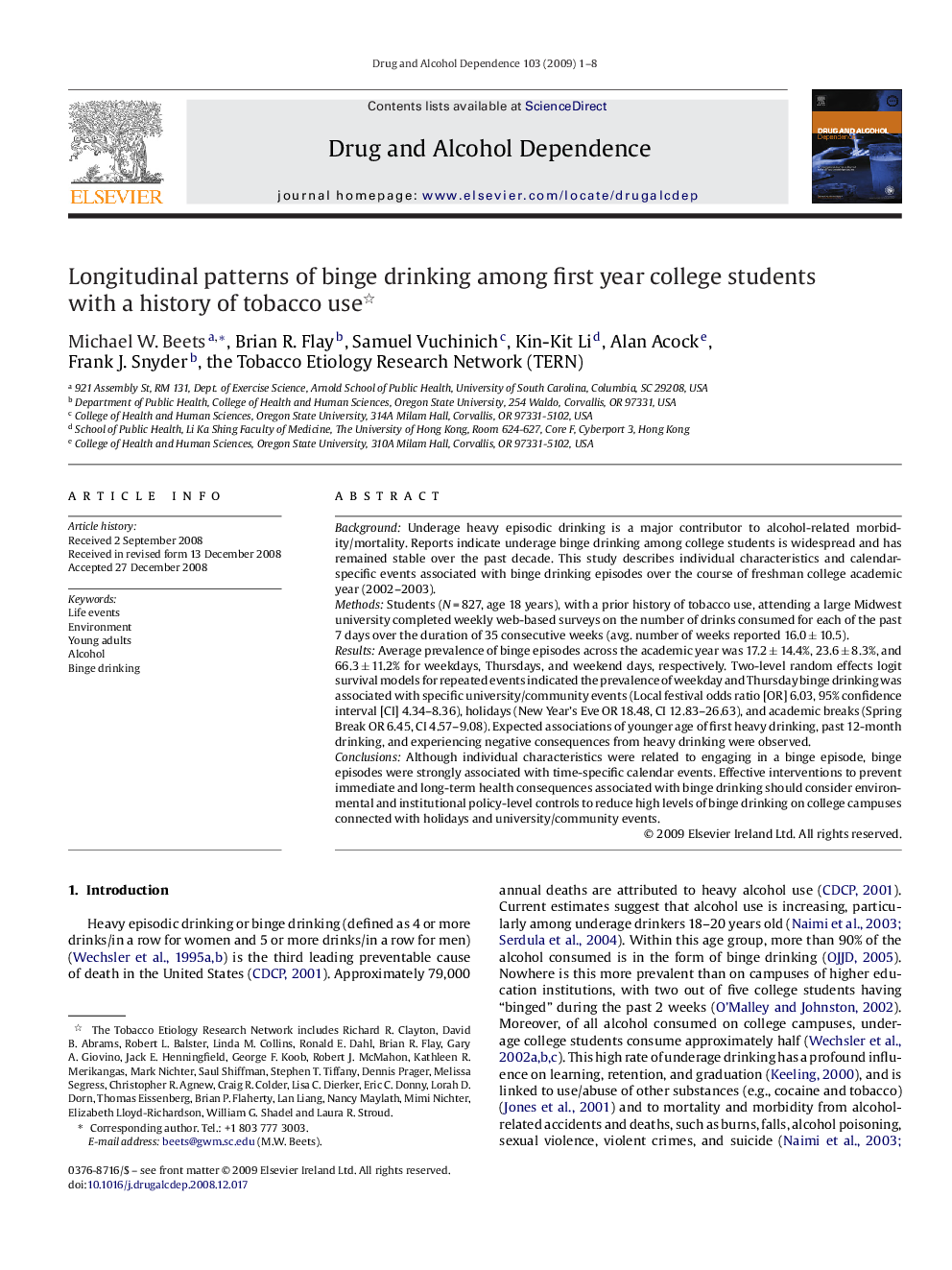| Article ID | Journal | Published Year | Pages | File Type |
|---|---|---|---|---|
| 1070705 | Drug and Alcohol Dependence | 2009 | 8 Pages |
BackgroundUnderage heavy episodic drinking is a major contributor to alcohol-related morbidity/mortality. Reports indicate underage binge drinking among college students is widespread and has remained stable over the past decade. This study describes individual characteristics and calendar-specific events associated with binge drinking episodes over the course of freshman college academic year (2002–2003).MethodsStudents (N = 827, age 18 years), with a prior history of tobacco use, attending a large Midwest university completed weekly web-based surveys on the number of drinks consumed for each of the past 7 days over the duration of 35 consecutive weeks (avg. number of weeks reported 16.0 ± 10.5).ResultsAverage prevalence of binge episodes across the academic year was 17.2 ± 14.4%, 23.6 ± 8.3%, and 66.3 ± 11.2% for weekdays, Thursdays, and weekend days, respectively. Two-level random effects logit survival models for repeated events indicated the prevalence of weekday and Thursday binge drinking was associated with specific university/community events (Local festival odds ratio [OR] 6.03, 95% confidence interval [CI] 4.34–8.36), holidays (New Year's Eve OR 18.48, CI 12.83–26.63), and academic breaks (Spring Break OR 6.45, CI 4.57–9.08). Expected associations of younger age of first heavy drinking, past 12-month drinking, and experiencing negative consequences from heavy drinking were observed.ConclusionsAlthough individual characteristics were related to engaging in a binge episode, binge episodes were strongly associated with time-specific calendar events. Effective interventions to prevent immediate and long-term health consequences associated with binge drinking should consider environmental and institutional policy-level controls to reduce high levels of binge drinking on college campuses connected with holidays and university/community events.
